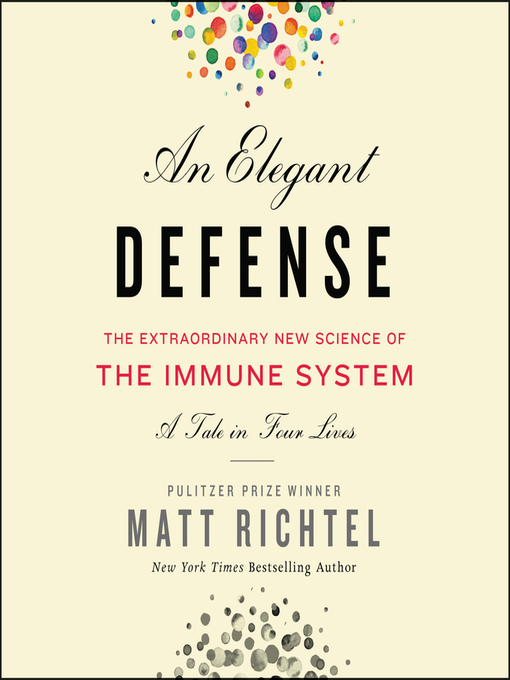A magnificently reported and soulfully crafted exploration of the human immune system–the key to health and wellness, life and death. An epic, first-of-its-kind book, entwining leading-edge scientific discovery with the intimate stories of four individual lives, by the Pulitzer Prize–winning New York Times journalist.
"An Elegant Defense by Matt Richtel is one of those rare nonfiction books that transcends the genre. On one level it is a fascinating and engrossing account of the latest, and quite astonishing, discoveries involving the human immune system and how it works. But it is also a story about people facing mortality, about the passion of scientists searching for truth, and a meditation on death and how all of us struggle with the ultimate mystery. Heartfelt and moving, full of compassion, love, and the human drama, this is the work of a writer of high ethical character who is grappling with big issues and deep humanistic problems. What an inspiring and wonderful read. I highly recommend this extraordinary book." —DOUGLAS PRESTON, #1 bestselling author of The Lost City of the Monkey God

